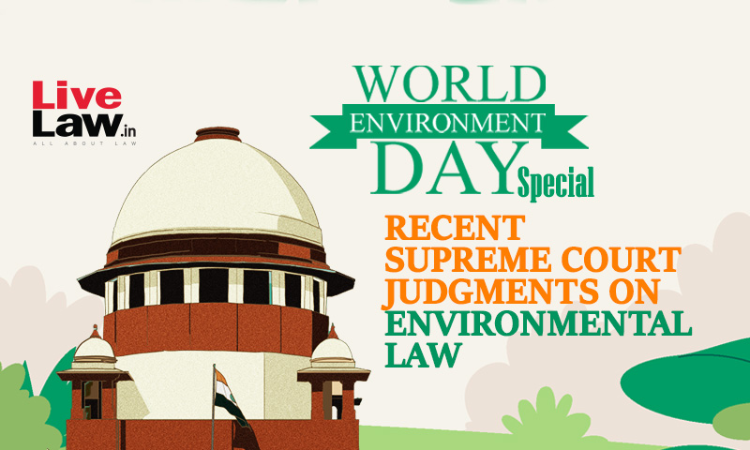World Environment Day Special- Recent Supreme Court Judgments On Environmental Law
LIVELAW NEWS NETWORK
5 Jun 2022 2:03 PM IST

Next Story
5 Jun 2022 2:03 PM IST
Environment Protection Act, 1986 - Appeal by Pahwa Plastics Pvt. Ltd against an NGT order holding that its manufacturing units, which did not have prior Environmental Clearance (EC) could not be allowed to operate - Allowed - The question in this case is, whether a unit contributing to the economy of the country and providing livelihood to hundreds of people, which has been set...
